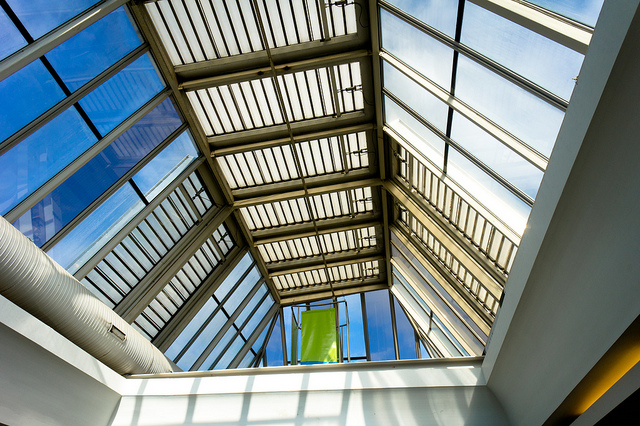New self-washing windows will cut our heating bills down by 40%

Author: William Murphy | Attribution parties: Flickr | Source
News about a new project developed by the scientists in the University College of London could once and for all relief us from the tedious task of washing windows and wiping the window panes to keep them clean and dry, and even better – can help reduce heating bills with up to 40% as well.
The “smart window” is made of a microstructure engraved in the windows, based on the structure of the eyes of moths.
These smart windows will clean themselves, and will be ultra-resistant to water, so any drops of rain or water will roll off the panes in spherical droplets leaving no moisture or staining. And best of all, these droplets will collect all dust and dirt on their way, so there will be virtually no need for actually washing these windows and panes.
This coating also helps the heat stay indoors, which could reduce the bills for heating drastically, especially in taller buildings. This coating is made of vanadium dioxide – an inorganic compound which keeps the heat inside in the winter, and keeps the harmful solar infrared radiation out when the temperatures rise and the sun is shining brightly.
This compound is easily available and very affordable, so it is much more financially sustainable and efficient than the current window coatings which are made with gold or silver.
The innovative combination of the nanostructure of the window and the thermochromic coating is actually a revolutionary one. Thermochromism is the ability of a substance to change its colour as a result of temperature change, which reduces the glare.
The self-cleaning of these smart windows is due to the nanostructures resembling pencils which are engraved in the glass. The design which is inspired by moth’s eyes to provide anti-glare properties is also an excellent feature. It turns out, moths and other creatures have special structures which give them anti-glare properties which help them to remain hidden from predators. This anti-glare feature of the innovative windows will reduce the direct light which is reflected in a room to under 5% which makes the lighting in the room much more comfortable for living and work.
The self-cleaning feature itself will not only save a lot of effort, but could save quite serious sums of money especially for washing windows on skyscrapers, which in many cases can cost as much as actually replacing them. This, in addition to the ability of this type of window to cut energy bills almost in half, makes it a very attractive and intriguing invention, especially given the contemporary tendency to make skyscrapers and other buildings almost completely covered with windows and glass. The maintenance of these buildings will cost much lower, and so will the heating being used inside it.
It’s expected that the first smart windows of this type will enter the actual market in three to five years, depending on the support the further development of this innovation gets from the construction industry.


 020 3746 6887
020 3746 6887